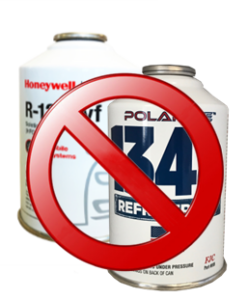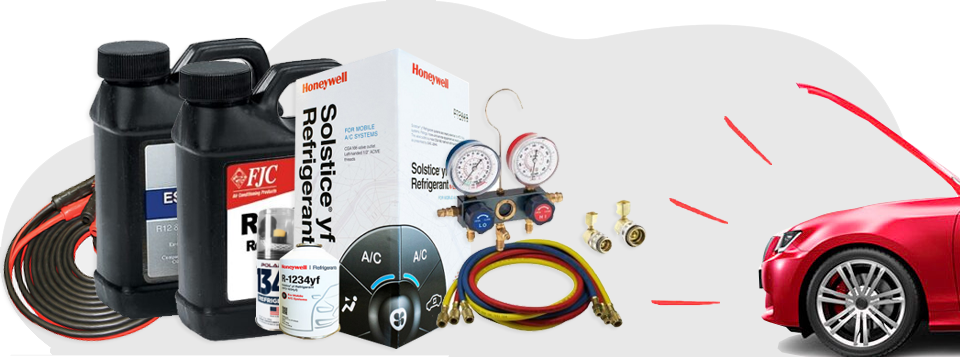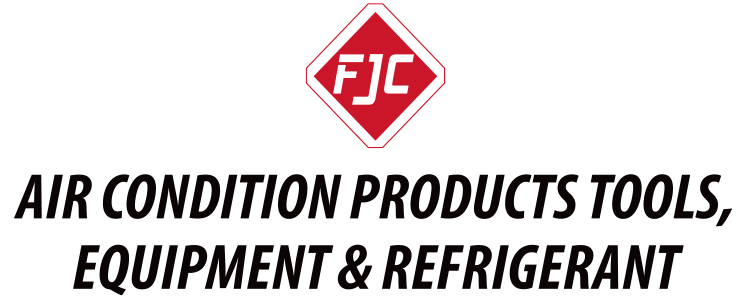Can I Use R-134a in an R-1234yf system?
Beginning in the mid-2010s, automotive and light-duty vehicle air conditioning systems began transitioning from R-134a to R-1234yf refrigerant. By MY 2021, the transition was complete. While yf, as we call it in the industry, is more environmentally friendly than prior refrigerants, it has historically been exponentially more expensive than its predecessors.
This cost differential has motivated many end-users to question whether they could simply use R-134a in an R-1234yf system. After all, the systems are very similar, the refrigerant properties are comparable, and there are adapters sold online which would help facilititate such a retrofit. Still, the answer is an emphatic, “No.” Not only would a retrofit of this type negate the environmental benefits of R-1234yf, but it would also be a violation of Federal Law under Section 203 of the Clean Air Act: “tampering” with a vehicle’s emissions control device.
One clear indicator that this type of tampering is strongly discouraged is the fact that R-1234yf systems, and the hoses, couplers, adapters and equipment which connect to them, are designed with unique fittings. This was intentially done because the contamination of air conditioning systems with an incorrect refrigerant could severely damage expensive components. To take it a step further, best practice is to use a different set of hoses, adaptors, and equipment for each type of refrigerant to avoid even minor cross-contamination.
A final reason NOT to consider retrofitting a system to R-134a (in case violating the law, harming the environment and potentially harming your system weren’t enough), is that the AIM Act. legislation passed in 2020 but coming into effect in 2022, is going to greatly reduce the supply of R-134a on the market, forcing its prices skyward. This will negate the one and only reason people contemplated the retrofit in the first place.

LMK 2022

